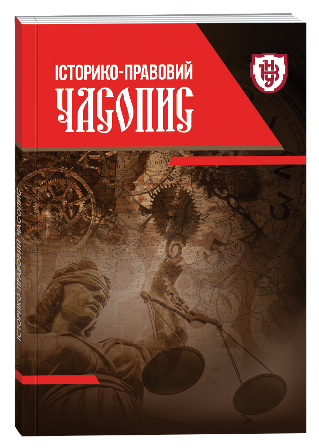Armed Forces of the Republic of Poland in the Normative System
Keywords:
Armed Forces of the Republic of Poland, military service, principles of activity of Armed Forces, Armed Forces neutrality, principle of Armed Forces subordination to the civilian атnd democratic controlAbstract
The author summarizes and analyzes the norms of military law of the Republic of Poland. Principles of functioning of the Armed Forces under the law are: 1) the principle of Armed Forces service for tasks which they are intended in the state, 2) the principle of Armed Forces neutrality in political affairs, 3) the principle of Armed Forces subordination to civilian and democratic control. The principle of Armed Forces service as part of the public tasks provides that soldiers ensure protection of independence of the state and the indivisibility of their territory, a well as the safety and security of its borders. The principle of political neutrality of the army denotes the restriction of military participation in public life. The essence of civil and democratic control of the Armed Forces provides that it belongs to the implementation of the chosen, elected parliamentary majority and they created a government responsible to parliament.Author made a conclusion that in a democratic state Armed Forces don’t have a privileged position among the other institutions and therefore are subject to the same rules that govern other government organs.State authorities regulate the policy framework security and defense of the state, determine the size of defense spending, the scope (number) of the Armed Forces, their general structure, as well as the basic principles of their organization and functioning.
References
Balcerowicz B. Siły zbrojne w państwie i stosunkach międzynarodowych / B. Balcerowicz. – Warszawa: Wydawnictwo Naukowe SCHOLAR, 2006.
Banaszak B. System prawa w Polsce – stan obecny i uwagi de lege ferenda fundamentali / B. Banaszak // Przegląd Legislacyjny. – 2008. – № 4. – S. 68-69.
Konstytucji Rzeczypospolitej Polskiej z dnia z dnia 2 kwietnia 1997 r. (z póź. zm.) // Dz. U. – 1997. – № 8. – Рoz. 483.
Machiavelli N. Książę / N. Machiavelli [Электронный ресурс]. – Режим доступа: http://www.gavagai.pl/media/society/niccolo_ machiavelli_-_ksiaze.pdf.
Stawecki T., Winczorek P. Wstęp do prawoznawstwa / T. Stawecki, P. Winczorek. – Warszawa: Wydawnictwo C.H. Beck, 2003.
Słownik terminów bezpieczeństwa narodowego. Red. B. Balcerowicz i J. Pawłowski. – Warszawa: AON, 2002.
Słownik języka polskiego. Red. M. Szymczak. – Warszawa: PWN, 1978.
Strategia Obronności Rzeczypospolitej Polskiej z 2009 roku. Strategia sektorowa do Strategii Bezpieczeństwa Narodowego Rzeczypospolitej Polskiej. Warszawa, 2009 r. [Электронный ресурс]. – Режим доступа: http://www.wp.mil.pl/pl/index/.
Ustawa z dnia 28 listopada 2003 r. o służbie zastępczej (z późn. zm.) // Dz. U. – 2003. – № 223. – Рoz. 2217.
Ustawa z dnia 21 listopada 1967 r. o powszechnym obowiązku obrony Rzeczypospolitej Polskiej // Dz. U. – 2004. – № 241. – Рoz. 2416.
Ustawa z dnia 11 września 2003 r. o służbie wojskowej żołnierzy zawodowych (z późn. zm.). // Dz. U. – 2003. – № 179. – Рoz. 1750.
Skrabacz A., Kitler W. Wojskowe wsparcie władz cywilnych i społeczeństwa / A. Skrabacz, W. Kitler. – Warszawa: AON, 2003.
Wołpiuk W. Siły zbrojne w regulacjach Konstytucji RP / W. Wołpiuk. – Warszawa: Wydawnictwo Naukowe SCHOLAR, 1998.
Downloads
Published
How to Cite
Issue
Section
License

This work is licensed under a Creative Commons Attribution-NonCommercial 4.0 International License.







